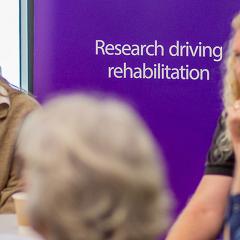What is the research about?
Musculoskeletal conditions such as neck pain, low back pain and osteoarthritis reduce a person's ability to work, creating a temporary or permanent disability for work. High-quality clinical practice guidelines consistently highlight the importance of keeping individuals with musculoskeletal conditions at work. However, addressing work and work-focused conversations are not sufficiently incorporated within the clinical encounter. One of the barriers to adopting work-focused care that healthcare providers face is a lack of knowledge about how to address obstacles to work participation.
This study provided an overview of current interventions to promote work-focused care by healthcare providers for individuals with musculoskeletal conditions.
What did the researchers do?
We searched several scientific databases to identify all published studies that test interventions with elements of work-focused care delivered by healthcare providers who manage musculoskeletal conditions. We summarized and synthesized findings from the identified interventional studies.
What did the researchers find?
We identified 18 interventional trials. We found that most studies were multidisciplinary interventions incorporating one or more elements of work-focused care, including:
- work-related assessment to identify barriers to working
- vocational advice/coaching or education to address barriers to working
- involvement of the workplace stakeholders
- restoration of fitness for work
- regular communication with multidisciplinary team members
However, the content within the same work-focused element differed between studies. This makes it difficult to draw firm conclusions regarding the effectiveness of a particular component, content or strategy of work-focused care itself, Although most studies (61%) concluded that their interventions improved work-related outcomes such as sick leave duration. A consistent, agreed description of what work-focused care should comprise has not been articulated nor implemented. The authors propose the following definition of work-focused care: 'Where the healthcare professional acknowledges the importance of work by identifying and addressing obstacles to work participation in the clinical encounter and collaborate with other stakeholders.'
What you need to know:
There is good evidence demonstrating the potential for healthcare providers to improve work outcomes for those with musculoskeletal conditions. However, additional training for healthcare providers is required to increase their confidence in this area of practice.
How can you use this research?
Our findings inform future designs of work-focused interventions that aim to enhance work participation in individuals with musculoskeletal conditions. Considering the heterogeneity of current work-focused care, future studies may consider identifying the key work-focused care components relevant to the countries' stakeholders and context/system and develop and implement the work-focused care interventions through co-design methods.
About the researchers

Dr Yanfei Xie is a postdoctoral research fellow at RECOVER Injury Research Centre.
Associate Professor Nathan Hutting is a researcher at the HAN University of Applied Sciences, research group Occupation & Health in the Netherlands, and a physiotherapist and manual therapist in private practice.
Associate Professor Serena Bartys is a psychologist and principal research fellow at the Centre for Applied Health Research, The University of Huddersfield in the UK.
Dr Venerina Jonhston is an Honorary Associate Professor at The University of Queensland and has qualifications in physiotherapy, occupational health and safety and work disability prevention.
Citation
Xie Y, Hutting N, Bartys S & Johnston V (2021). Interventions to Promote Work-Focused Care by Healthcare Providers for Individuals with Musculoskeletal Conditions a Scoping Review. 31(4):840-865. https://doi.org/10.1007/s10926-021-09971-w
Keywords
Musculoskeletal pain; Work; Healthcare provider; Review
Contact information, acknowledgements
Dr Yanfei Xie
RECOVER Injury Research Centre, The University of Queensland



